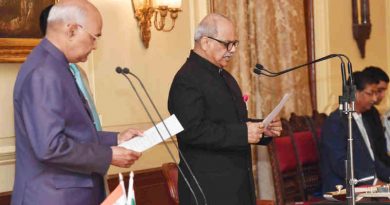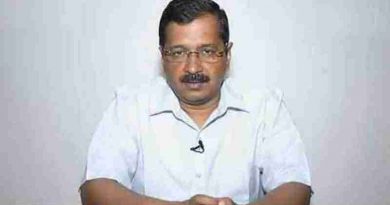Executive Briefing: The 11th UN Anti-Corruption Conference (COSP11)

Executive Briefing: The 11th UN Anti-Corruption Conference (COSP11)
The conference agenda prominently features the integration of artificial intelligence (AI) and other new technologies into anti-corruption efforts.
By RMN News Service
New Delhi | October 19, 2025
1.0 Introduction: Strategic Importance of COSP11
This briefing provides a strategic overview of the upcoming eleventh session of the Conference of the States Parties (COSP11) to the United Nations Convention against Corruption. Prepared for senior decision-makers and key stakeholders, this document details the conference’s official theme, core objectives, and primary focus areas. As the world’s foremost international gathering dedicated to combating corruption, COSP11 is a critical juncture for shaping global policy, reinforcing international enforcement mechanisms, and addressing urgent challenges to public and private sector integrity.
2.0 Conference Overview and Context
The Conference of the States Parties serves as the main policymaking body for the United Nations Convention against Corruption, the “only legally binding universal anti-corruption instrument.” While its biennial sessions are always significant, COSP11 is poised to be a watershed moment, moving beyond procedural reviews to directly confront threats posed by rapid technological change and increasingly transnational criminal enterprises.
Core logistical details for the conference are as follows:
- Official Title: The eleventh session of the Conference of the States Parties to the United Nations Convention against Corruption (COSP11)
- Location: Doha, Qatar
- Dates: 15 to 19 December 2025
- Official Theme: “Shaping Tomorrow’s Integrity”
The conference theme signals a clear intent to move beyond established frameworks and proactively address the future of the anti-corruption fight, with a specific focus on the thematic priorities of the agenda.
3.0 Core Thematic Pillars for Discussion
The conference agenda is structured around several critical pillars designed to address emerging threats and bolster the global anti-corruption framework. The agenda is designed to produce actionable strategies that reinforce international cooperation and adapt to a rapidly changing technological and economic landscape. This section analyzes the strategic implications of these key priorities.
3.1 Bolstering International Cooperation
A central focus of COSP11 is the strengthening of international cooperation, a mechanism essential for countering the “realities of complex criminal activities today.” Deliberations will strategically examine the links between corruption, economic crime, and organized crime. This enhanced cooperation is a strategic prerequisite for dismantling sophisticated criminal networks, disrupting their operations, and ensuring that perpetrators are held accountable, regardless of jurisdiction.
RELATED RMN NEWS REPORTS
[ UN Anti-Corruption Conference Set for Doha in December 2025 ]
[ International Anti-Corruption Court: A Noble Idea Stalled by Bureaucratic Inertia ]
[ India Judicial Research Report 2025 Exposes Deep-Rooted Corruption ]
[ Download: India Corruption Research Report Examines the Corruption Ecosystem in India ]
3.2 Leveraging Technology and Artificial Intelligence
The conference agenda prominently features the integration of artificial intelligence (AI) and other new technologies into anti-corruption efforts. This initiative presents a dual strategic imperative. First, it seeks to leverage technology for the prevention of corruption by building more transparent and resilient systems. Second, it aims to enhance the detection of corrupt activities by deploying advanced analytical tools, thereby transforming the capabilities of law enforcement and oversight bodies.
3.3 Strengthening Private Sector Integrity
COSP11 will advance the commitment to reinforcing anti-corruption measures within the private sector. This is framed as a strategic imperative to “shape the future of global business integrity.” The agenda will drive corporate anti-corruption efforts beyond basic compliance, promoting proactive engagement and the development of robust integrity frameworks that can withstand the pressures of a complex global marketplace.
3.4 Enhancing Public Governance and Accountability
The agenda includes several items aimed at improving the integrity and resilience of public systems. Two areas are of particular strategic importance:
- Improving Financial Transparency: Deliberations will target the adoption of new standards to strengthen public financial systems. This directly supports the goals of improving transparency and helping to reduce illicit financial flows, which are primary enablers of large-scale corruption.
- Safeguarding Channels of Exposure: The conference will address the importance of safeguarding whistle-blowers, investigative journalism, and media professionals. This is a critical component for maintaining robust accountability mechanisms, as these individuals and groups play an indispensable role in exposing corruption and demanding public accountability.
Together, these pillars represent a two-pronged approach: hardening systemic defenses against corruption while simultaneously empowering the individuals and institutions most capable of exposing it.
4.0 Participant Profile and Conference Mandate
The influence of COSP11 is derived from the breadth and seniority of its attendees, who collectively represent the global anti-corruption community. Over 2,000 high-level officials are expected to participate, drawn from a wide range of sectors including governments, civil society, the private sector, and various regional and intergovernmental organizations. This broad coalition is not merely for show; it is essential for building the global consensus required for the effective domestic implementation and cross-border enforcement of COSP resolutions.
The official mandate of the Conference of the States Parties is to meet every two years with the dual objectives of reviewing the implementation of the Convention and deliberating on how to enhance cooperation between States to achieve the Convention’s objectives. The mandate and composition of this body ensure that its conclusions will have significant strategic implications for global leadership.
5.0 Strategic Implications for Senior Leadership
COSP11 is not merely a forum for discussion but a crucible where the next generation of global anti-corruption norms, enforcement priorities, and policy standards will be forged. For senior leadership, the strategic imperatives emerging from Doha will necessitate a direct policy response.
The clear international momentum toward integrating AI into compliance and enforcement, coupled with a renewed focus on private sector integrity, signals a major shift in the global landscape. The outcomes of this conference will directly impact international standards and expectations for both public governance and corporate conduct, demanding proactive engagement from leadership to navigate the evolving landscape.
💛 Support Independent Journalism
If you find RMN News useful, please consider supporting us.




